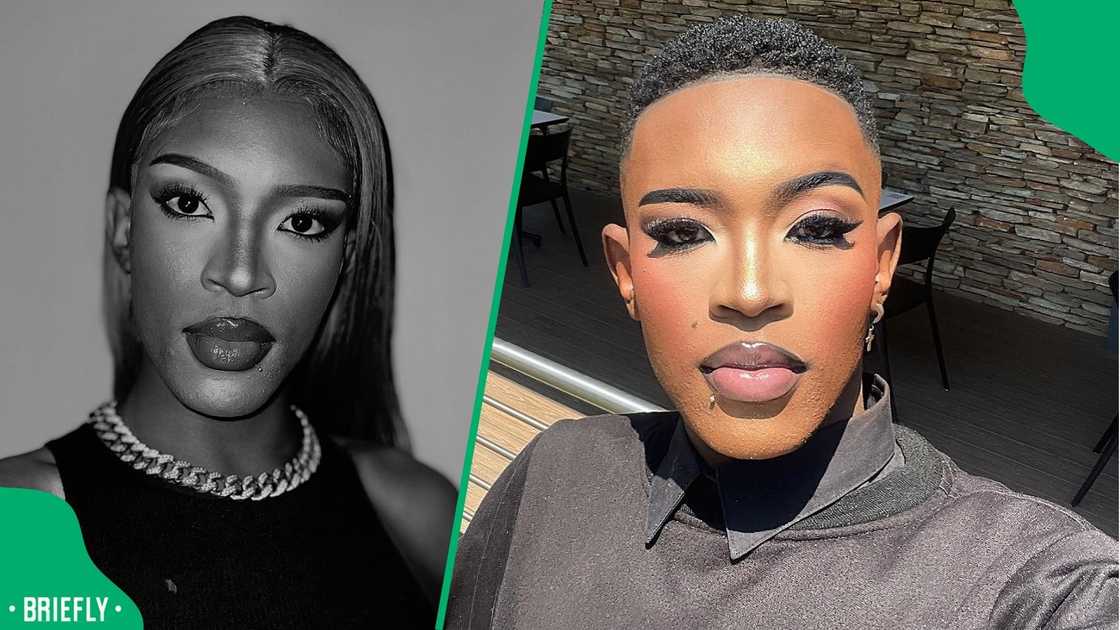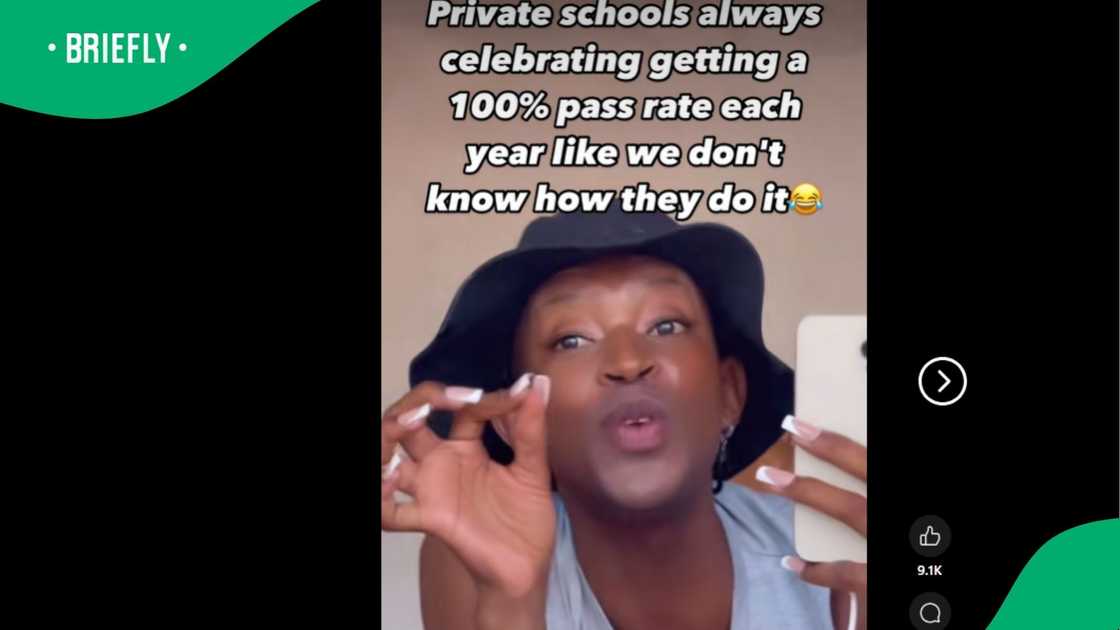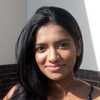“They Don’t Want You To Mess Up”: Educator Reveals Why Private Schools Get 100% Pass Mark
- A content creator sparked debate after claiming private schools achieve perfect pass rates by making struggling students drop difficult subjects like maths, physics and accounting
- The controversial take suggests these schools prioritise maintaining their spotless reputation over helping students overcome academic challenges in tougher subjects
- South Africans had mixed reactions to the claim, with some agreeing based on personal experiences, while others pointed out that public schools do the same
Don't miss out! Join Briefly News Sports channel on WhatsApp now!

Source: Facebook
A qualified educator and content creator from Johannesburg has stirred up conversation after sharing their theory on why private schools consistently achieve 100% pass rates in mid-April. In a video, which is gaining attention, @lesegothebrand, who works as an educator, marketing professional, makeup artist and content creator, suggested these perfect scores might not tell the whole story.
In the viral clip, the content creator stated:
"Some of these private schools, they always get 100 percent due to the fact that they always make kids drop the subject that they are struggling in... Like your maths, your physics, your accounting. If it's very hard, they drop it. Why? They don't want you to mess up the pass rate."
This bold statement has prompted many South Africans to reflect on their own educational experiences and the differences between private and public schooling in the country.
PAY ATTENTION: Briefly News is now on YouTube! Check out our interviews on Briefly TV Life now!
Watch the Facebook clip below.
Private vs public schools in South Africa
While the content creator's claim focuses on one aspect of private education, the differences between private and public schools in South Africa go much deeper than just pass rates.
Private schools run independently with money from fees and donations, giving them the freedom to create their own curriculum and special programmes. Public schools, however, follow a curriculum set by the government and get their money from taxpayers.
The main differences include:
- Private schools can develop their teaching methods and offer more subjects.
- Private schools usually have smaller classes, so pupils can get more personal attention.
- Many private schools have better access to technology, sports facilities and learning materials.
- Private schools often attract teachers with special skills or higher qualifications.
- The smaller size of private schools can create closer communities and networking opportunities.
Briefly News spoke to health expert Jayshri Rangasamy regarding mental health effects when students study subjects they have a hard time understanding. She stated that:
"In early development, exposure to various subjects is crucial for building a well-rounded foundation, discovering interests, and developing a broad skill set. Encouraging exploration of both interests and new subjects maintains enthusiasm and well-being. If students struggle with a subject, additional support like tutoring can help manage challenges. Promoting a growth mindset fosters resilience and coping strategies."
"Balancing their workload with enjoyable subjects can mitigate negative impacts and maintain overall well-being. Limiting exposure to preferred subjects might create imbalances and prevent discovering new interests. As students grow older, specialising in subjects they enjoy deepens knowledge and skills, boosting engagement, confidence, and mental health, which is vital for higher education and career opportunities. Tailoring education to developmental stages ensures the best outcomes, with younger students following a set curriculum covering a broad range of subjects and older students choosing subjects to specialise in at higher grades and tertiary institutions."

Source: Facebook
Cost is also a factor. Education fees vary between public and private schools. Public schools, particularly no-fee institutions, are state-funded and don't charge tuition. Fee-paying public schools, often in urban areas, have annual fees ranging from approximately R24,000 to R36,000. Some of the most expensive government schools, such as Pretoria Boys’ High School, charge up to R75,100 per year.
Private schools, on the other hand, have higher tuition fees. Mid-range private schools may charge between R60,000 and R120,000 annually. Elite institutions, like Kearsney College and Crawford International Sandton, can have fees exceeding R240,000 per year, with some boarding schools charging over R350,000.
Mzansi shares mixed opinions
South Africans weighed in with different perspectives on the content creator's claim:
@BusiLanga questioned the criticism:
"But isn't that exactly what's supposed to happen? Why continue with a subject you are struggling with? Worse, you won't even get a bachelor's degree, and you are stuck with subjects with low symbols. Not everyone is supposed to do physics and maths, and as soon as we realise that, the better."
@LeratoMolefe pointed out:
"They're doing it in public schools too, but still no 100% pass rate."
@RochelleGilbert shared a personal experience:
"Or they drop you. Tell you to go elsewhere. I experienced that with my foster son."
@RachelMoshoeu offered another perspective:
"The problem with our school is that they want to do the whole textbook, while these private ones do question papers. Imagine doing previous question papers the whole year. You will excel. Our teachers wouldn't even do one previous paper with learners, and then they act surprised when kids fail."
@MpumeleloRalarala compared teacher approaches:
"Teachers from public schools are negligent and lazy. Students mark their class workbooks, and homework never gets marked. Parents hardly monitor the progress of their children, but are quick to insult teachers. In private schools, parents are very supportive and are always involved."
Other education-related stories
- Briefly News recently reported on a teacher who was left completely startled after a cheeky student handed him a mysterious note during class.
- A primary school teacher won hearts across social media after posting a fun-filled video showing her dancing with students.
- One woman defied odds, funding her own Rhodes degree by running a business from her dorm room while balancing academic excellence and leadership roles.
Updated by Sisi Lwandle, Entertainment HOD at Briefly News.
PAY ATTENTION: Follow Briefly News on Twitter and never miss the hottest topics! Find us at @brieflyza!
Source: Briefly News

Nerissa Naidoo (Human Interest Editor) Nerissa Naidoo is a writer and editor with seven years of experience. Currently, she is a human interest writer at Briefly News and joined the publication in 2024. She began her career contributing to Morning Lazziness and later joined Featherpen.org. As a TUW ghostwriter, she focused on non-fiction, while her editorial roles at National Today and Entail.ai honed her skills in content accuracy and expert-driven editing. You can reach her at nerissa.naidoo@briefly.co.za

Jayshri Rangasamy (Medical Scientist - Pharmacologist - Clinical Team Lead) Jayshri Rangasamy leads Fortrea's Clinical Team, managing Clinical Operations Delivery. Her expertise spans non-infectious (cardiovascular, endocrinology, gastroenterology) and infectious diseases (tuberculosis, Ebola, COVID-19) plus oncology (lung cancer, hematologic malignancies). She holds MS and BS degrees in Pharmacology and Human Physiology from the University of Pretoria and promotes empathetic leadership. She is also a ballroom dancer and animal activist.
